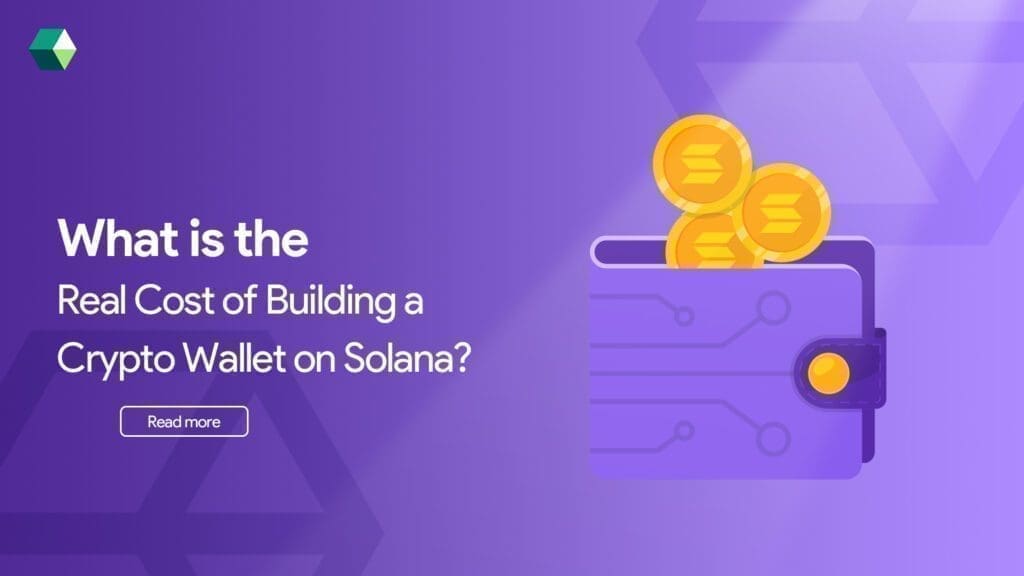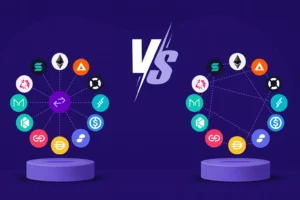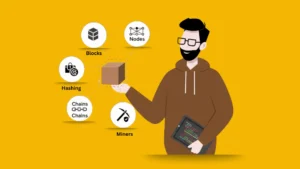
Crypto Wallet on Solana is rapidly gaining traction among blockchain startups, enterprises, and Web3 innovators—and for good reason. As blockchain adoption accelerates, the need for reliable, fast, and scalable wallet solutions is more critical than ever. Solana, known for its high throughput and ultra-low transaction fees, presents a compelling option for businesses looking to build next-generation crypto wallets.
Whether you’re launching a DeFi platform, NFT marketplace, or a secure personal wallet, the blockchain you choose plays a major role in overall performance and cost. Solana stands out by offering high-speed processing, minimal transaction costs, and growing developer support—all crucial advantages in today’s competitive crypto space.
However, building a wallet isn’t just about choosing the right chain. It’s also about understanding the full scope of development—from features and security to ongoing maintenance and unexpected expenses. That’s where working with an experienced cryptocurrency wallet development company can make all the difference. Getting a clear view of these factors early on can save time, reduce risk, and help you make smarter decisions moving forward.
Why Solana for Crypto Wallet Development?
When it comes to building a high-performance crypto wallet, Solana is quickly becoming the blockchain of choice for many developers and businesses. Known for its speed, scalability, and low transaction fees, Solana offers an ideal environment for handling large volumes of crypto transactions efficiently. It can handle thousands of transactions per second at a fraction of a cent in fees, making it highly suitable for real-time applications like crypto wallets.
With the rising adoption of decentralized finance (DeFi) and Web3 technologies, users expect seamless wallet experiences, and Solana delivers just that. If you’re aiming to create a crypto wallet that can handle real-world demand and scale with user growth, Solana stands out as a forward-thinking option.
Additionally, Solana offers an active developer community, comprehensive documentation, and tools like Solana Web3.js, the Anchor framework, and support for the Rust programming language. These factors contribute to quicker development cycles and a richer set of features.
Key Features Every Solana Wallet Should Have
Building a wallet on Solana isn’t just about supporting SOL tokens. A truly functional and user-friendly wallet should include the following features:
- User Authentication & Authorization:- Secure logins using private keys, seed phrases, or biometric access.
- Multi-token Support:- Ability to store, send, and receive various SPL tokens.
- Transaction History:- Users should be able to track their transaction logs in real-time.
- Staking Functionality:- Integration for staking SOL and earning rewards.
- NFT Management:- Support for viewing and managing NFTs on the Solana blockchain.
- QR Code Support:- Simplified transactions through QR code scanning.
- Push Notifications:- Real-time alerts on transactions, balance updates, and security warnings.
- Backup and Recovery:- Options to recover wallets via seed phrases or other secure recovery options.
- Fiat Integration:- Some wallets integrate fiat gateways for user convenience.
These core features form the base of any competitive wallet and will directly affect both the development timeline and cost.
Breakdown of Development Costs
The cost of building a Solana-based crypto wallet depends on multiple components. Here’s a rough breakdown:
-
Frontend and UI/UX Design
A clean, intuitive interface is essential. Whether you’re building for mobile (iOS/Android), web, or both, expect the design phase to cost between $3,000 to $8,000, depending on complexity and responsiveness. A well-designed interface is critical for user retention.
-
Backend Development
This involves server-side architecture, APIs, and database integration. A basic backend might range from $5,000 to $12,000. Advanced backend systems that include transaction queues, caching layers, analytics, and user account management may push this higher. Backend logic also covers features like fee calculation, token swap integrations, and more.
-
Blockchain Integration
Integrating Solana’s RPC APIs, wallet SDKs like Solana Web3.js, and node services can cost anywhere from $4,000 to $10,000. This includes enabling wallet functions such as signing transactions, fetching account data, and interacting with smart contracts or dApps.
-
Smart Contract Development
If you need custom smart contracts (for staking, swaps, or DeFi tools), the development cost can range from $3,000 to $7,000, depending on complexity. Smart contracts must be thoroughly tested to prevent vulnerabilities.
-
Testing and Security Audits
Testing is critical, especially in the world of blockchain. Manual testing, automated unit tests, and security audits can cost $5,000 to $15,000. Additional tools like static code analyzers or bug bounty programs can increase security but add to costs. In total, the initial development cost can vary between $20,000 and $50,000, depending on your features, team size, and development location.
Ongoing Maintenance and Updates
Development doesn’t end with launch. Your wallet will need:
- Regular updates for bug fixes and improvements
- Security patches to address vulnerabilities
- API updates as Solana evolves
- User support and feature enhancements
- System monitoring and analytics to track performance
These ongoing services typically cost 15–20% of the initial development cost annually. For example, if your wallet costs $40,000 to build, expect to spend another $6,000–$8,000 annually on maintenance. Also, consider that blockchain networks evolve quickly. Your Solana wallet may need updates to support new token standards, governance mechanisms, or interoperability protocols. All of this adds to ongoing costs.
Additional Hidden Costs to Consider
-
Third-Party APIs and Services
You might integrate APIs for crypto price feeds, transaction alerts, or KYC/AML compliance. These often come with monthly fees that range from $50 to $500+ depending on usage volume and functionality.
-
Wallet Hosting & Server Costs
Even decentralized apps need frontend hosting, backend APIs, and server resources. Hosting on scalable cloud platforms like AWS or DigitalOcean can cost $100–$1,000/month, depending on usage. Add to that CDN services, database hosting, and analytics tracking tools.
-
Regulatory Compliance
If your wallet will operate in multiple jurisdictions or offer fiat-to-crypto conversions, you’ll need to invest in legal compliance and possibly licensing. Legal consulting fees can range from $5,000 to $50,000, depending on the countries you operate in. A licensed Cryptocurrency Wallet Development Company can help navigate these regulations from the start.
How Long Does It Take to Build a Solana Wallet?
Timeframes vary depending on feature complexity and team size. Here’s a rough breakdown:
- Basic Wallet: 4–6 weeks
- Standard Wallet with core features: 8–12 weeks
- Advanced Wallet with custom features & smart contracts: 12–20+ weeks
Project timelines can be reduced through agile development, pre-built components, and efficient project management. An experienced Crypto Wallet Development Company will help you save time and resources without compromising on quality.
How Nadcab Labs Helps Reduce Your Wallet Development Cost
At Nadcab Labs, we specialize in Crypto Wallet Development Services and have been building blockchain solutions since 2017. Our development process is transparent, secure, and optimized for speed and efficiency. Here’s how we help reduce your wallet development cost:
- Reusable Core Modules:- We use pre-built modules to speed up development.
- In-house Experts:- No need to outsource—we have smart contract auditors, blockchain architects, and designers all in-house.
- Regulatory Guidance:- We help you stay compliant from day one, saving legal costs down the line.
- Ongoing Support:- We offer maintenance packages that reduce your post-launch expenses.
As a trusted solana wallet development company, our goal is to provide maximum value without compromising quality or security. Whether you need a basic crypto wallet or a feature-rich Web3 wallet, we tailor the development to your specific goals and budget.
Ready to Build Your Solana Wallet? Let’s Talk!
Building a wallet is an investment, but it doesn’t have to break the bank. With the right team, clear goals, and proper planning, your Solana wallet can be built securely, efficiently, and affordably.
Let Nadcab Labs turn your idea into a reality. Contact us today to schedule a free consultation and get a customized quote for your wallet project.
Need a secure and scalable crypto wallet? Let’s build it together with Nadcab Labs—your trusted Crypto Wallet Development Company.





